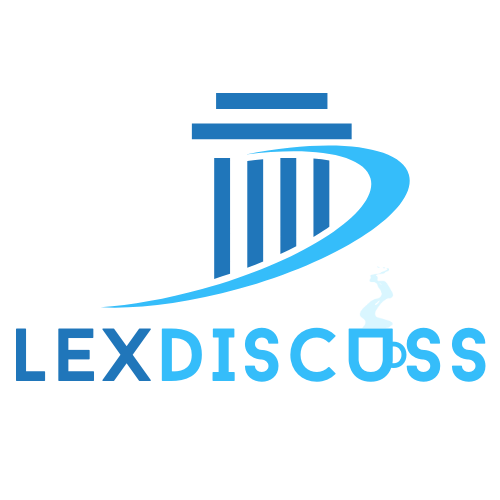Contract Review and Risk Mitigation:
Eeshaan, as a Team Lead overseeing contract review support solutions, what strategies do you employ to ensure thorough contract analysis? How do you identify and mitigate legal risks effectively?
In overseeing contract review support solutions, we employ a multifaceted strategy. This includes a combination of advanced analytical tools, such as AI-based contract review software, and comprehensive legal checklists that ensure all critical clauses are examined during the contract review and redline workflow. Regular updates to the contract template library and knowledge sharing within the team are also pivotal. We focus on key risk areas such as indemnity, liability, compliance obligations, Intellectual Property and confidentiality. To mitigate risks, we maintain close collaboration with key business stakeholders, ensuring alignment with business objectives while identifying potential legal pitfalls early in the review process. Post a comprehensive review process, we then proceed to contract negotiations with the counterparty.
Could you share an instance where your team’s contract review directly influenced a significant business decision?
One notable instance involved a major in-licensing agreement with a global pharmaceutical giant for a critical therapy drug. Our thorough review identified ambiguous language around intellectual property rights, and indemnity risks which could have led to substantial disputes in the future. By addressing this, and incorporating clear and unambiguous contract language, we facilitated amendments that clarified ownership and usage rights, directly impacting the decision to proceed with the partnership under more favourable terms.
Navigating Pharma Contracts:
Working in the pharma sector involves complex agreements related to licensing, distribution, and regulatory compliance. How do you approach drafting and negotiating pharma contracts? Are there any unique challenges specific to this industry?
Drafting and negotiating pharma contracts require a deep understanding of the regulatory landscape and the healthcare business, as well as the scientific and commercial aspects of the industry. We approach this by involving cross-functional teams, including legal, finance, regulatory, and scientific SME’s, to ensure comprehensive coverage of all pertinent issues. The unique challenges include managing the intricacies of legal risk management including product manufacturing related liability, intellectual property, ensuring compliance with varying international regulations, and addressing the fast-paced innovation environment that can quickly render terms obsolete.
Any tips for legal professionals dealing with intellectual property aspects in the pharmaceutical domain?
For legal professionals dealing with IP in pharma, it is crucial to stay updated with the latest regulatory changes and patent law developments. Effective collaborations with key stakeholders and SME’s is a key aspect and building a robust understanding of the scientific basis of products can also aid in drafting more precise and protective IP clauses. Additionally, engaging with SME’s in IP law and regularly attending industry-specific legal seminars can provide valuable insights and networking opportunities.
Legal Tech and Efficiency:
Legal tech tools are transforming contract management. How do you leverage technology to streamline contract lifecycle processes? Are there any specific tools or platforms you find indispensable?
I helped spearhead the advanced AI CLM tool which was implemented organisation-wide to leverage automation of repetitive tasks and low risk, high volume contracts like NDA’s, automated template population, using AI Clause libraries, enhanced accuracy, e-sign and e-stamping of contracts, and to speed up the contract lifecycle. Tools like AI-driven CLM system, and e-signature software are indispensable. Such technologies allow for efficient document management, real-time collaboration, and better compliance tracking which are resulted in significantly improved workflow.
Could you share an example where legal tech significantly improved efficiency or accuracy?
A prime example is the implementation of an AI-powered contract review tool that reduced the initial review time by 30%. This tool highlighted key clauses and flagged potential risks automatically, allowing our team to focus on more complex analysis and negotiations. This improvement has not only accelerated the contracting process but also increased the accuracy and consistency of our reviews.
Contributing to Legal Publications:
You’ve contributed to multiple legal publications on topics like the right to be forgotten and harm reduction. How do you balance legal research and writing with your day-to-day responsibilities? What motivates you to share your insights?
Balancing legal research and writing with daily responsibilities requires effective time management and prioritization. The motivation to share insights comes from a passion for advancing legal knowledge and a focus on constant upskilling. Additionally, writing helps refine my own understanding and keeps me updated on the latest developments.
Any upcoming legal topics you’re excited to explore further?
I am particularly excited about exploring the legal implications of artificial intelligence in contract law and compliance. As AI continues to evolve, understanding its impact on traditional legal frameworks and addressing potential ethical and regulatory challenges will be crucial for organisations to navigate.
Rapid-Fire Round:
Favorite legal podcast or blog?
My favorite legal podcast is “LexDiscuss.cafe”, and the blog “IPleaders,” which covers the latest in legal innovation and technology.
One legal myth you’d like to debunk?
The myth that “legal is a roadblock to speedy contract execution and that lawyers always prefer lengthy and complex contracts.” In reality, clarity, simplicity and usage of unambiguous contract language are often more effective in protecting the organisation from risk and preventing disputes.
If you could attend any historical legal trial, which one would it be?
Tough choice to make, but it would have to be ‘Novartis AG vs. UOI, 2013’ which is a landmark case.
A legal skill you’ve honed over the years?
Negotiation skills. Effective negotiation is key to achieving favorable outcomes while maintaining positive relationships.
The most memorable contract negotiation you’ve been a part of?
The most memorable negotiation for me was the aforementioned in-licensing agreement with a global pharmaceutical giant for a critical therapy drug. The negotiation involved multiple rounds of intense discussions and required balancing diverse stakeholder interests. Successfully concluding this deal was a significant achievement for me personally and for our team.

